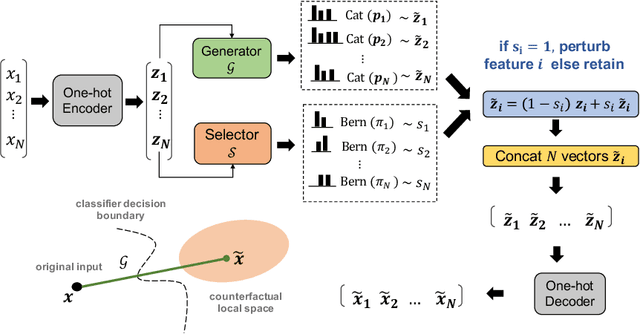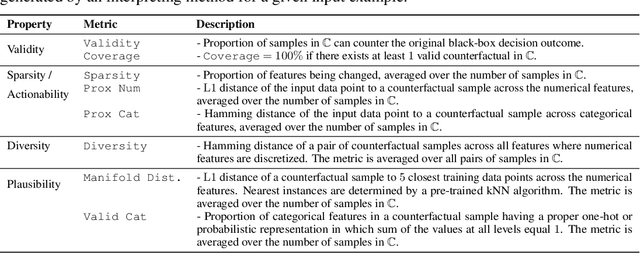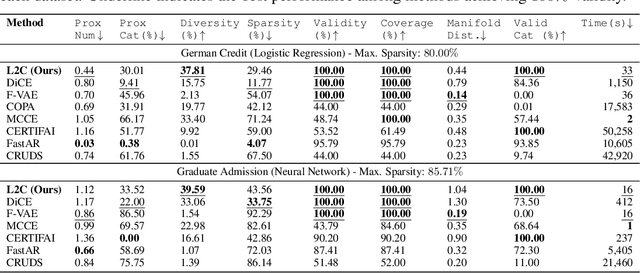Learning to Counter: Stochastic Feature-based Learning for Diverse Counterfactual Explanations
Paper and Code
Sep 27, 2022



Interpretable machine learning seeks to understand the reasoning process of complex black-box systems that are long notorious for lack of explainability. One growing interpreting approach is through counterfactual explanations, which go beyond why a system arrives at a certain decision to further provide suggestions on what a user can do to alter the outcome. A counterfactual example must be able to counter the original prediction from the black-box classifier, while also satisfying various constraints for practical applications. These constraints exist at trade-offs between one and another presenting radical challenges to existing works. To this end, we propose a stochastic learning-based framework that effectively balances the counterfactual trade-offs. The framework consists of a generation and a feature selection module with complementary roles: the former aims to model the distribution of valid counterfactuals whereas the latter serves to enforce additional constraints in a way that allows for differentiable training and amortized optimization. We demonstrate the effectiveness of our method in generating actionable and plausible counterfactuals that are more diverse than the existing methods and particularly in a more efficient manner than counterparts of the same capacity.
 Add to Chrome
Add to Chrome Add to Firefox
Add to Firefox Add to Edge
Add to Edge